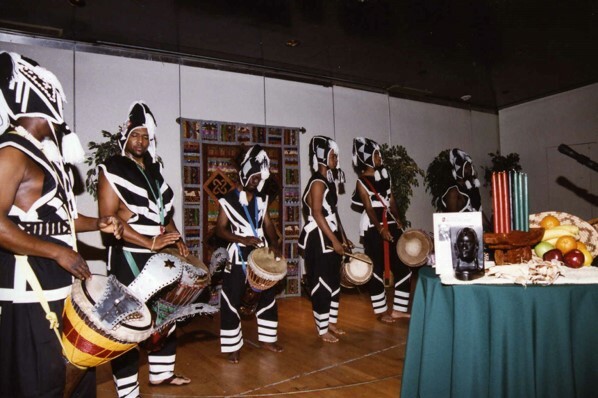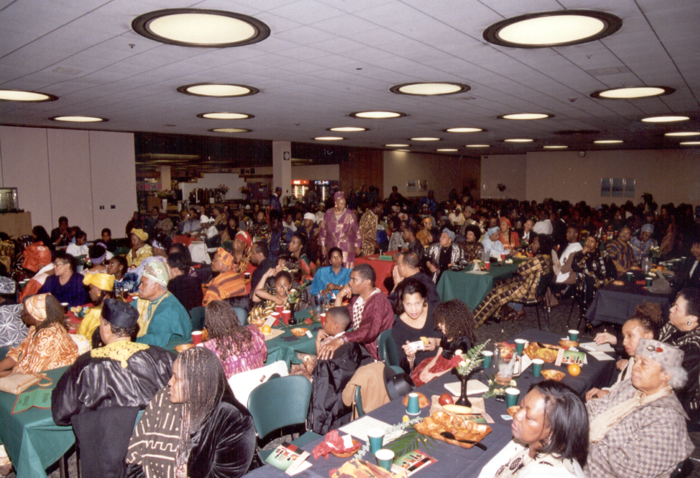The principle of self-determination carries within it the assumption that we have both the right
and responsibility to exist as a people and make our own unique contribution to the forward flow
of human history. This principle shelters the assumption that as fathers and mothers of humanity
and human civilization in the Nile Valley, we have no business playing the cultural children of
the world. So it reminds us of the fact that African people introduced and developed some of the
basic disciplines of human knowledge—astronomy, geometry, literature, math, medicine, ethics,
advanced architecture, etc. And it urges us as a people not to surrender our historical and
cultural identity to fit into the culture of another. Openness to exchange is a given, but it
presupposes that one has kept enough of one's culture to engage in exchange, rather than
slavishly follow another's lead.
The principle and practice of self-determination expresses and supports the concept and practice
of Afrocentricity. Afrocentricity is a quality of thought and practice which is rooted in the
cultural image and human interests of African people. To say that a perspective or approach is
in an African cultural image is to say it's rooted in an African value system and world view,
especially in the historical and cultural sense. And to say that an approach or perspective is
in the human interests of African people is to say it is supportive of the just claims African
people have and share with other humans, i.e., freedom from want, toil and domination, and
freedom to fully realize themselves in their human and African fullness.
Afrocentricity (1) does not seek to deny or deform others' history and humanity, but to affirm,
rescue and reconstruct its own after the Holocaust of Enslavement and various other forms of
oppression. Afrocentricity at its cultural best is an ongoing quest for historical and cultural
anchor, a foundation on which we raise our cultural future, ground our cultural production and
measure their authenticity and value. Moreover, Afrocentricity is an on-going critical
reconstruction directed toward restoring lost and missing parts of our historical self-formation
or development as a people. It is furthermore a self-conscious posing of the African experience,
both classical and general, as an instructive and useful paradigm for human liberation and a higher level
of human life. Afrocentricity, as the core and fundamental quality of our self-determination, reaffirms our
right and responsibility to exist as a people, to speak our own special truth to the world and to make our own
contribution to the forward flow of human history. To do the opposite is immoral; to do less is dishonorable and
ultimately self-destructive.
(1) Molefi Asante, The Afrocentric Ideal, Philadelphia: Temple University Press, 1987



